Гай Кей - Tigana Afterword and more
Здесь есть возможность читать онлайн «Гай Кей - Tigana Afterword and more» весь текст электронной книги совершенно бесплатно (целиком полную версию без сокращений). В некоторых случаях можно слушать аудио, скачать через торрент в формате fb2 и присутствует краткое содержание. Год выпуска: 2000, Жанр: Фэнтези, на английском языке. Описание произведения, (предисловие) а так же отзывы посетителей доступны на портале библиотеки ЛибКат.
- Название:Tigana Afterword and more
- Автор:
- Жанр:
- Год:2000
- ISBN:нет данных
- Рейтинг книги:5 / 5. Голосов: 1
-
Избранное:Добавить в избранное
- Отзывы:
-
Ваша оценка:
- 100
- 1
- 2
- 3
- 4
- 5
Tigana Afterword and more: краткое содержание, описание и аннотация
Предлагаем к чтению аннотацию, описание, краткое содержание или предисловие (зависит от того, что написал сам автор книги «Tigana Afterword and more»). Если вы не нашли необходимую информацию о книге — напишите в комментариях, мы постараемся отыскать её.
Tigana Afterword and more — читать онлайн бесплатно полную книгу (весь текст) целиком
Ниже представлен текст книги, разбитый по страницам. Система сохранения места последней прочитанной страницы, позволяет с удобством читать онлайн бесплатно книгу «Tigana Afterword and more», без необходимости каждый раз заново искать на чём Вы остановились. Поставьте закладку, и сможете в любой момент перейти на страницу, на которой закончили чтение.
Интервал:
Закладка:
Guy Gavriel Kay
Tigana Afterword and more
On Writing SAILING TO SARANTIUM [1] This piece was written for Earthlight, GGK's British publishing house.
At the end of every novel I write, a journey begins with no known destination. I never know what my next book will be. In order to find out, for each of my past four novels, I read history. Random periods, varying styles of scholarship and narrative, books I've meant to read for a while, books just published, books encountered in reviews or by simply browsing the stacks of bookshops. And from this eclectic process, so far, an idea, a concept, a framework has always emerged.
For Sailing to Sarantium the process was slightly less random and I suppose this can be acknowledged as a case of reviewers and readers impacting on an author's progress. For years, it seems, one of the most common adjectives attached to my fiction has been 'Byzantine'. I treat it as a compliment, since my own taste as a reader tends very much towards books with complex plots and equally complex characters. It occurred to me, after reading yet another such assessment of my most recent book, that I might as well do some exploring in the real thing — and find out something about the Byzantines.
I was hooked, like a fish. The vibrant, dangerous gorgeous city that the Emperor Constantine named for himself and made his capital in the fourth century AD offered the promise of a setting, plot twists, characters, themes and motifs… all the elements that spur and motivate my use of fantasy to examine our own histories.
That last might need explaining. For me, fantasy has never been in its essence about constructing elaborate magical systems for duelling sorcerers or contriving new versions of an enchanted ring or further variations on the use of hyphens and apostrophes in invented names. Fantasy is — at its best — the purest access to storytelling that we have. It universalizes a tale, it evokes wonder and timeless narrative power, it touches upon inner journeys, it illuminates our collective and individual pasts, throws a focusing beam on the present day, and presages the dangers and promises of the future. It is — or so I have argued for years — a genre, a mode of telling, that offers so much more than it is usually permitted to reveal.
In Byzantium — which became my own alchemized Sarantium — I found magic and mysteries, sexuality, dazzling art, chariot racing in the magnificent Hippodrome (with partisan brawling in the streets before and after), warfare, political intrigue, and the ageless clashes between east and west, secular and pious, artist and soldier, walled city and open countryside. I found, in short, and in the glorious words of Yeats who gave me both my title and my access to the supernatural in this dazzlingly rich setting, 'whatever is begotten, born and dies.'
What more, really, could a writer desire? Well, one thing more I suppose: that his own art be worthy of the inspiration. And that, for all my books including Sailing to Sarantium and its sequel to come, will be for the reader to judge — which is as it should be.
© 2000 by Guy Gavriel Kay
TIGANA: 10 thAnniversary Afterword [2] This afterword first appeared in the ROC USA 10th anniversary edition of Tigana, published in 1999. It is reprinted here with kind permission of the publishers.
Tigana is in good part a novel about memory: the necessity of it, in cultural terms, and the dangers that come when it is too intense. Scelto's decision at the end of the novel is a reflection of that, and so is the George Seferis passage that served as one of my epigraphs. The world today offers more than enough examples of both pitfalls: ignorance of history and its lessons, and the refusal to let the past be past.
So, accepting that this is precarious terrain — an author's memories of a book about remembering — what does that imply, more than a decade after the writing?
Well, one might consider caution as a byword.
I doubt there's any other novel I've written for which I'd even attempt a reconstruction of the earliest seeds of the book. But Tigana happens to have had a number of quite specific and very powerful elements in its origin, and some of these I can (or I have persuaded myself that I can) reconstruct.
Some time in the latter part of the 1980's I began seeing in my mind a hunting cabin in the woods, in some Medieval or Renaissance setting. There was someone unexpected (from the point of view of those inside) sitting in the window. I had not the least idea who that was or what else happened, in those early days, but I knew that a book would unfold from whatever took place in and around that cabin.
There exists a photo — I think I saw it first in 'LIFE' magazine — from Czechoslovakia, in 1968, the time of the 'Prague Spring' when a brief, euphoric flicker of freedom animated that Iron Curtain country before the Soviet tanks rolled in and crushed it brutally. There are actually two photographs. The first shows a number of Communist Party functionaries in a room, wearing nondescript suits, looking properly sombre. The second is the same photo. Almost. There is one functionary missing now, and something I recall to be a large plant inserted where he was. The missing figure — part of the crushed uprising — is not only dead, he has been erased from the record. A trivial technical accomplishment today, when the capacity we have for altering images and sound is so extreme, but back then the two photographs registered powerfully for me, and lingered for twenty years: not only killed, but made to never have been .
Another starting point: there's a play called 'Translations', by Brian Friel. It is basically an extended, passionate debate between a village priest in Ireland and the leader of an English survey team that has been traversing the countryside, mapping it carefully and — more importantly— changing the names of places , from Gaelic to English. Both men are aware of what is at stake: when you want to subjugate a people — to erase their sense of themselves as separate and distinctive — one place to start (and it is sometimes enough) is with their language and names. Names link to history, and we need a sense of our history to define ourselves. When Maoist China decreed that history began with their own Long March and introduced an education system to back that up, thereby eradicating thousands of years of the past (or trying to), they knew exactly what they were doing. It is hardly an accident that separatist movements so often involve attempts to reclaim a lost language. In Provence highway signs give place names in both French and the almost-lost Provençal tongue. The independence movement in Wales has incorporated attempts to reclaim their language as one of public discourse (a reaction to the English refusal to allow it to be used in schools or even schoolyards once upon a not-so-long-ago time). In Quebec, the often bitter struggle between Separatists and those who wish to remain a province of Canada finds a battleground in language all the time. Tigana was an attempt to use magic to explore these themes: erasing a people from the record of history by stripping them of their name.
A story like this needs a setting. Another strand to mine, even before it was a story, came from reading early Italian Renaissance history. The record of that brilliant and brutal time brought home to me how long-delayed Italian coherence and identity was because of the savage feuding among the city-states. Internal warfare made them not only incapable of repelling the ambitions of France and Spain but led the Italian cities to take turns inviting them in —so long as the outside army did a proper job of raping and pillaging hated Milan or Venice or Florence or Pisa on behalf of whichever city had extended them an invitation. The boot of Italy became my Peninsula of the Palm, with the ambience of olive groves and vineyards I wanted, and my model for Brandin of Ygrath became that of a Borgia or Medici prince, arrogant, cultured, far too proud. Alberico, opposing him, was a crude, efficient Politburo survivor.
Читать дальшеИнтервал:
Закладка:
Похожие книги на «Tigana Afterword and more»
Представляем Вашему вниманию похожие книги на «Tigana Afterword and more» списком для выбора. Мы отобрали схожую по названию и смыслу литературу в надежде предоставить читателям больше вариантов отыскать новые, интересные, ещё непрочитанные произведения.
Обсуждение, отзывы о книге «Tigana Afterword and more» и просто собственные мнения читателей. Оставьте ваши комментарии, напишите, что Вы думаете о произведении, его смысле или главных героях. Укажите что конкретно понравилось, а что нет, и почему Вы так считаете.

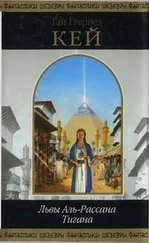
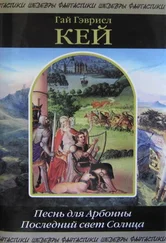
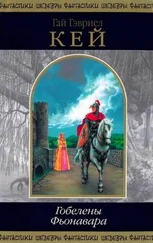
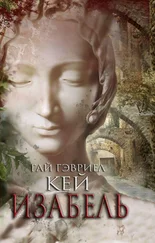
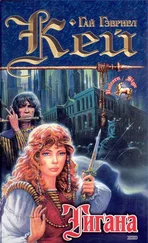
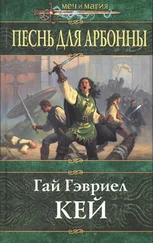
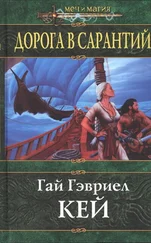
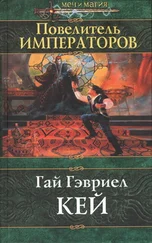
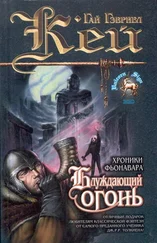
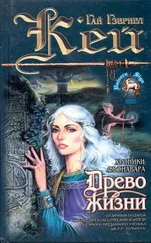
![Гай Кей - Блеск минувших дней [litres]](/books/386191/gaj-kej-blesk-minuvshih-dnej-litres-thumb.webp)